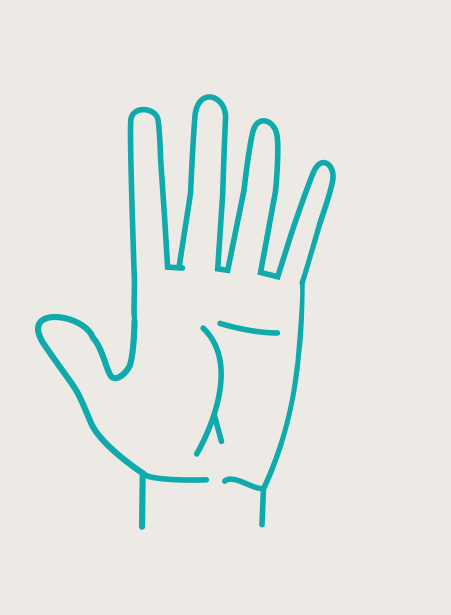What comes to mind when you think of a WhatsApp group? Yet another app for hanging out as family, school friends or perhaps for planning a surprise party on the occasion of yet another cousin’s 50th birthday? Has it occasionally felt as though the app had become a tool for advancing certain political agendas? Would you agree, as Milan and Barbosa (2020) have argued, that the platform is constitutive for digital activism? In their recent paper, the two scholars posit that somewhere during the rise of digital activism – especially in the Global South – a WhatsApper was born. This is “an individual who uses the chat app intensively to serve her political agenda, leveraging its affordances for political participation.” To avoid the cumbersome name: “digital-activists-who-take-advantage-of-the-possibilities-afforded-by-WhatsApp-and-use-the-app-in-their-activism-almost-constantly”, Milan and Barbosa identify these individuals as WhatsAppers.
I sure have encountered a few WhatsAppers and I do tend to agree with Milan and Barbosa’s theory on a few points. First of all, the phenomenon might, indeed, be particular to the Global South. Perhaps linked to this is the fact that WhatsApp is considered to be safe in contexts of increasing state surveillance. The phenomenon is meaningful enough for some to talk about “digital democracy and how democracies are shaped by pivotal moments of citizenry afforded by digital platforms such as WhatsApp and other instant messaging platforms” (Pang and Ting Woo, 2019). And just so we are on the same page, the Global South is not to be understood as a geographical area here. Rather, I draw from McEwan’s (2019, p. 8) observation that imperialism and colonialism have “undeniably shaped” contemporary economies and cultures so that global unequal powers are visible everywhere. McEwan therefore proposes that the North/South distinction be understood as “metaphorical” rather than “geographical” allowing for instance the Australian Aboriginal communities to be thought as part of the global South despite being located in the generally wealth North and, conversely, the super-rich of Brazil, India and China as part of the Global North. It is the potential impact of WhatsApp activism on these types of divides that I am interested in.
Back to the WhatsApper, when WhatsApp affords political participation to some, I wonder whether participants are from the most disadvantaged of this world. My question is two-fold, namely: How does the app functions and is the everyday WhatsApper truly the mastermind behind her activism or does the functioning of the app reveal higher powers directing her and her activism? It is my hope that the two complementary questions can guide me and the reader into a conversation on whether WhatsApp is somewhat fostering democracy or if the app further undermines democratic processes, especially in the South.
How Does WhatsApp Work?
The original enthusiasm as to what new digital technologies could do to enhance democracy has perhaps not died out but there is growing skepticism towards just how democratic what is achieved through digital activism is today. In the case of WhatsApp, this is partly due to the scarcity of studies on how the application functions, according to Cheeseman et al. (2020) How the app operates has not always been an issue of concern. Rather, first generation pessimists worried about the ability for authoritarian governments to undermine democracy by turning off WhatsApp, especially during periods leading up to elections, when even nonpolitical WhatsApp groups contribute to channeling much of the election-related information. In other words, the app being inactive and its users cut off from such an essential source of information was highly problematic.
However, this became less of a concern for second generation sceptics, as the inability to trace back the origin of a message highlighted how prone the application is to spreading fake news. And this has a direct link to both the structure (end-to-end encryption or E2EE) and the make-up (relatively large sized groups currently maxed at 256 members) and the actual content of messages circulating on the platform. In other words, not only are senders afforded anonymity, but one can neither trace back the origin of a video nor determine where it first appeared. This obviously makes WhatsApp a powerful tool for spreading disinformation.
In a chapter titled “Understanding ICT4D, Heeks (2017) makes an important point when he says that “one person’s information is another person’s data.” Data is raw, unprocessed information, Heeks explains, and it is only when data has been processed and become useful to its recipient that it gains the status of information. Heeks (2017) adds that further information processing makes it into knowledge, once “assimilated into a coherent framework of understanding: often within the human mind.” Information can therefore be valuable to some but what really makes an impact in the sense of bringing about results is information processed into knowledge.
One person’s information is another person’s data. (Heeks, 2017)
A study on India’s first WhatsApp election found that more than a third of the posts were forwards. Where the posts originate and why certain WhatsAppers so actively forward are questions that often comes to mind.
Who Is Your Everyday WhatsApper and What Drives Her Activism?
Looking at what motivates common WhatsApp users might perhaps lead to an understanding of who the WhatsApper is or at least what motivates her? News sharing and gathering for reciprocity – be it by the general population or journalists and activists – has been identified among top motivations for using WhatsApp (Pang and Ting Woo 2019). A second motivation, which also operates through sharing information that may or may not be political in nature, is to enhance the sense of solidarity and collective identity. Thirdly, event publication and coordination has emerged as a big motivator for using the platform, one that mostly concerns activists. A fourth and last of these leading motivations, which can undoubtedly be linked to civic and political engagement, is the need to escape state surveillance.
The use of WhatsApp clearly extends far beyond moments of protests and activism. There is, indeed, an everyday, identity building nature of WhatsApp although it can easily move into the political and back into the social, and so on. Nonetheless, the social user aside, Pang and Woo (2019) distinguish three types of civic engagement. Firstly, there is frontline engagement which is seen mostly when the app serves as a coordination tool for activists. Among other things, this first type of engagement contributes to making the movement more visible. The second, i.e. passive facilitation, is comparable to slackivism (Morozov 2011) and includes actions such as sharing and forwarding which, although more indirect, still support each movement. Termed relational engagement, the third and last mode of engagement can be said to act as a forger of collective identity, togetherness and eventually, a shaper of individual’s identification with the issue and movement.
“information is never consumed in a vacuum; it is always consumed in a social context that influences the way the information is perceived, and the impact of its consumption.” (Heeks, 2017)
Whether a WhatsApper is openly committed to spreading the ideas of her movement and therefore involved in frontline engagement or she is passively facilitating the process by helping circulate messages posted in her group, I would argue that any of these forms of engagement eventually evolves into shaping or forging how the individual identifies with the issue behind the activism. They may or may not end up perceiving themselves as sharers of the group’s collective identity. As Heeks (2017) puts it, “information is never consumed in a vacuum; it is always consumed in a social context that influences the way the information is perceived, and the impact of its consumption.”
We may never find out who the WhatsApper or sender of the data is, but we, as consumers, invariably end up with processed information, albeit to a varying degree. Rather than pondering therefore over the identity of the WhatsApper or the force behind her activism, a more relevant question for me as a daily consumer of thousands of WhatsApp posts and potential voter might be what segment of the information I swallow is turned into knowledge that contributes to building what Heeks (2017) refers to as my “frameworks of knowledge”. That seems a wiser, more responsible way of consuming information and of contributing to stronger democracies, don’t you think?
Cheeseman, N. Fisher, J. Hassan, I. And Hitchen, J. (Julu 2020). Social Media Disruption – Nigeria’s WhatsApp Politics. Journal of Democracy. Vol. 31, N°3. National Endowment for Democracy and Johns Hopkins University Press.
Heeks, R. (2017). Understanding ICT4D in Information and Communication Technology for Development (ICT4D). Taylor and Francis Group.
McEwan, C. (2019). Postcolonialism, Decoloniality and Development. London and New York: Routledge Taylor and Francis Group.
Milan, S. and Barbosa, S. (2020). Enter the WhatsApper: Reinventing digital activism at the time of chat apps.
Pang N., and Ting Woo, Y. (2019). What About WhatsApp? A Systematic review of WhatsApp and its role in civic and political engagement.


